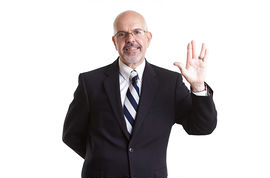Rational Economic Man and Negotiation
Rational Economic Man and Negotiation
The University of Chicago is the high temple of economic theory. Yet here in the pages of the New York Times is a University of Chicago economist committing the heresy of pointing out how unrealistic is the economists’ assumption that people make decisions based only on “rational” factors.
From The New York Times :The Upshot feature of May 8, 2015, in the article “Unless You Are Spock, Irrelevant Things Matter in Economic Behavior,” author Richard H. Thaler writes,
“Economists create this problem with their insistence on studying mythical creatures often known as Homo Economicus. I prefer to call them “Econs”— highly intelligent beings that are capable of making the most complex of calculations but are totally lacking in emotions. Think of Mr. Spock in “Star Trek.”
But as he quickly discovered when he confronted real life — in this case, as a young professor dealing with actual students — that is not how people work. As he puts it, “unfortunately for the theory, many supposedly irrelevant factors do matter.”
Read the rest of this article here: “Unless You Are Spock, Irrelevant Things Matter in Economic Behavior”
We at Mobus Creative Negotiating use the research of modern “behavioral economists” like Richard Thaler. We show how to use to your advantage these “irrational” factors that in practice influence people’s decisions as much or more than the rational economic man or Spock-like calculations assumed in older economic theory — and assumed in way too much traditional advice offered on how to negotiate.
— Patrick Clawson
RICHARD H. THALER is a professor of economics and behavioral science at the Booth School of Business at the University of Chicago. He is the author of “Misbehaving: The Making of Behavioral Economics,” from which this article is adapted, and which will be published this month by W.W. Norton.


